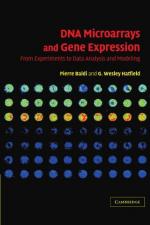|
This section contains 1,107 words (approx. 4 pages at 300 words per page) |

|
Locus control regions are defined as gene regulatory sequences that are able to direct high-level and tissue-specific expression of a transgene, independent of its site of integration the host genome. These regions influence the mechanisms of gene activation and silencing through both trans-acting and cis-acting elements that are not completely understood, but seem to involve both long-distance gene regulation and major chromatin remodeling events.
The locus control region was first identified in studies of severe cases of beta-globin deficiencies in human known as gamma, delta, or beta-thalassemia. These diseases involve natural deletions far upstream of the human beta-globin locus and result in transcription silencing of the gene, even though its enhancer, promoter and protein-coding region are normal. Transcription of each gene in the beta-globin locus is restricted to specific developmental stages and to erythroid cells, and both gene...
|
This section contains 1,107 words (approx. 4 pages at 300 words per page) |

|


